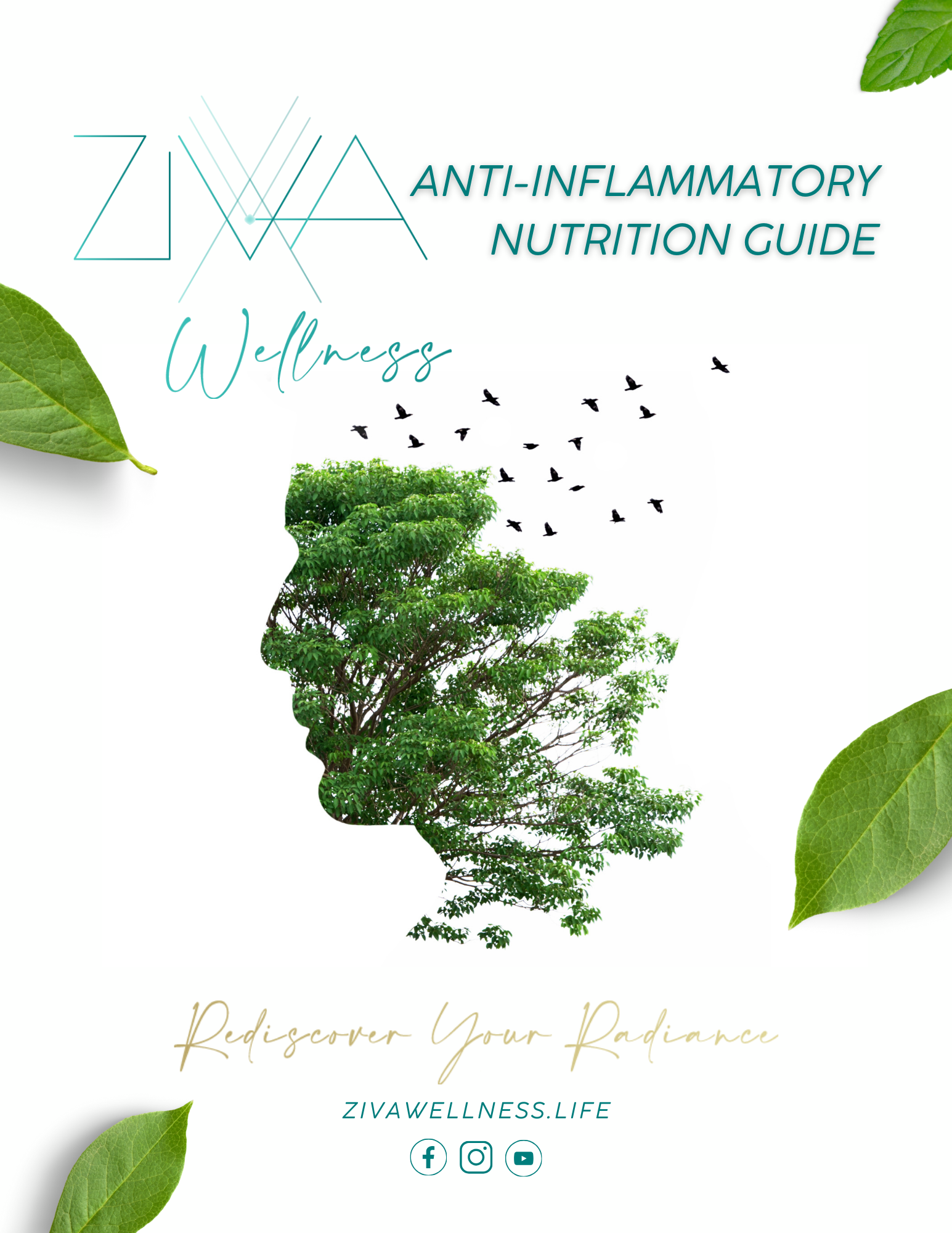Harnessing the Healing Power of Food: The Anti-Inflammatory Diet for Holistic Wellness
What we put into our bodies every single day has the power to make a significant difference in our overall wellbeing. In my experience, I've found that one of the most transformative approaches to healing is embracing an anti-inflammatory diet. This dietary approach not only aids in pain relief but also has profound effects on various aspects of health, including mental and emotional wellbeing.
It's no secret that food is more than mere sustenance; it is medicine. The foods we consume can either promote healing and vitality or contribute to inflammation and disease within the body, mind, and spirit. Adopting an anti-inflammatory diet involves not only incorporating healing foods but also removing what I like to call the "Big 5" culprits: gluten, dairy, soy, sugar, and alcohol.
Let's delve deeper into the transformative power of an anti-inflammatory diet:
Pain Relief and Inflammation Reduction
Chronic inflammation is at the root of many health conditions, including arthritis, autoimmune diseases, and even mental health disorders like anxiety and depression. By adopting an anti-inflammatory diet rich in whole, nutrient-dense foods, individuals can effectively reduce inflammation in the body, leading to significant pain relief and improved overall health.
Foods that are known for their anti-inflammatory properties include fatty fish rich in omega-3 fatty acids, colorful fruits and vegetables bursting with antioxidants, nuts and seeds, and healthy fats like olive oil and avocado. These foods not only help to combat inflammation but also provide essential nutrients that support overall health and wellbeing.
Mental and Emotional Wellbeing
The connection between gut health and mental health is well-established, with research highlighting the role of inflammation in conditions such as anxiety and depression. By nourishing the gut with healing foods and removing inflammatory triggers, individuals can experience improvements in mood, cognition, and overall emotional wellbeing.
In addition to eliminating the "Big 5" inflammatory foods, it's essential to focus on consuming a diverse array of plant-based foods to support gut health and mental wellness. Eating the rainbow—incorporating a variety of fruits and vegetables of different colors—ensures a wide range of nutrients and antioxidants that support brain health and reduce inflammation.
The Importance of Removing Inflammatory Triggers
While incorporating healing foods is crucial, removing inflammatory triggers is equally important. Gluten, dairy, soy, sugar, and alcohol are known to contribute to inflammation in the body and can exacerbate existing health conditions. By eliminating these triggers, individuals can experience profound improvements in their health and wellbeing.
While making dietary changes can feel daunting at first, the benefits far outweigh the challenges. Transitioning to an anti-inflammatory diet doesn't mean sacrificing flavor or enjoyment. With a bit of creativity and exploration, individuals can discover a world of delicious, nourishing foods that support their health goals.
In conclusion, the power of an anti-inflammatory diet to promote holistic wellness cannot be overstated. By embracing whole, nutrient-dense foods and removing inflammatory triggers, individuals can experience profound improvements in pain relief, mental and emotional wellbeing, and overall health. Food truly is medicine, and by harnessing its healing power, we can support our bodies, minds, and spirits on the journey to optimal health and vitality.
Are you ready to explore deeper into an anti-inflammatory diet?
Fill out the form below to your FREE copy of our Anti-Inflammatory Nutrition Guide!

